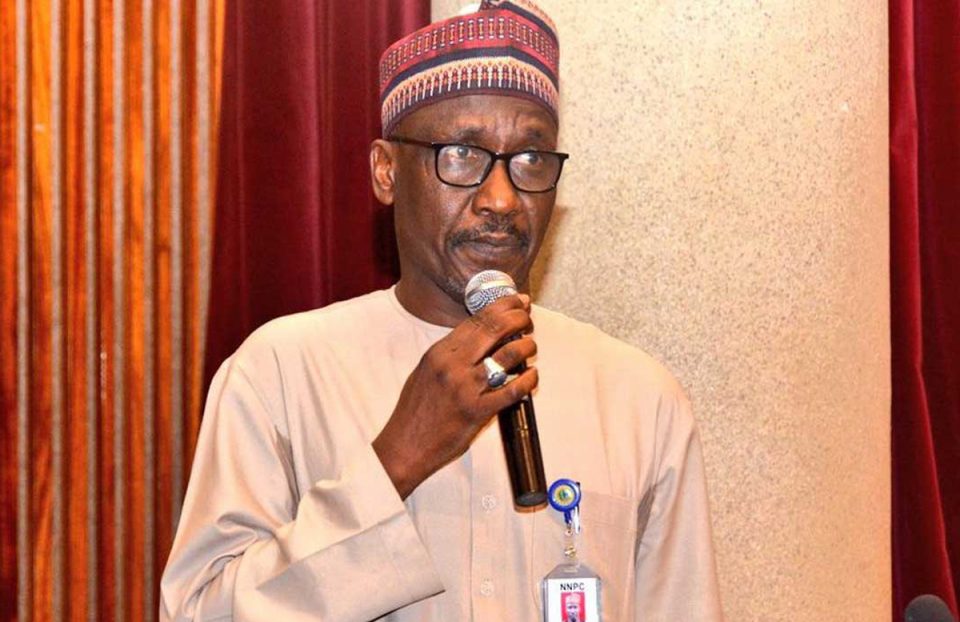The Group Managing Director, GMD, of the Nigerian National Petroleum Corporation, NNPC, Mele Kyari, has rallied operators in the oil and gas industry to gear up for a full digitalized industry that will bring about the required turn around in terms of enhanced production, efficiency and accountability.
Kyari, said the industry has been significantly challenged by several factors ranging from lack of adequate fiscal policy, regional security, market volatility, sabotage, theft among others.
The GMD, in a remark at the opening of the 2019, Nigeria Annual International Conference and Exhibition, NAICE, in Lagos on Monday with the theme, “Artificial Intelligence, Big Data and Mobile Technology: Changing the Future of the Energy Industry, said lack of data gathering has also posed serious challenge to the industry.
Today, no data provided by the Corporation or any other source is seen to be accurate, Kyari said, adding that the theme of the conference is apt as it will challenge the industry to key into the digital age.
While he recapitulated the benefits of digitization, which among others will bring about efficiency and improved production and cost effectiveness, he said the NNPC, will step up re-jigging its self by adopting and implementing policies for better performance, other stakeholders should clearly enclasp Artificial Intelligence and Big Data opportunities.
On the part of the Corporation, he said efforts would be geared toward achieving the ambitious 40 billion crude oil reserve and 3 million barrels per day production, and expedite action on its intervention initiative in products refining space.
Kyari, said that it is shameful that Nigeria is a net importer of refined petroleum products because all the refineries as at today are not functional.
“We will therefore fix our selves, help Dangote refinery come on stream, and also intervene in facilitating modular refineries, and at the end we stop product importation”, he said.
The GMD, also requested the support of stakeholders to influence the completion of the Petroleum Industry Legislation, which he regretted had lingered since 1999. With the legislation in place, Kyari said more investments will flow into the industry because some challenges like gas pricing, contractual issues, and licensing renewals will be properly taken care of.
In her address, the Permanent Secretary of the Ministry of Petroleum Resources, Folasade Yemi-Esan noted that though the awareness of Artificial Intelligence has been on since 2011, adaptation is very slow in the oil and gas sector compared with other sectors of the economy.
Yemi-Esan,therefore urged stakeholders to embrace the initiative while on its part the ministry would bring parastatals under it to acquire reliable Data through policy on transparency and efficiency.
She said the ministry is working with some stakeholders to authenticate its Data and will also push for ongoing collaborative work with the National Bureau of Statistics, NBS.
The Permanent Secretary also called for capacity building on the emerging technology to bridge the skill gap in the sector, assuring that the ministry will develop policies for mainstreaming of Artificial Intelligence in the industry.
Also speaking the Acting Director, Department of Petroleum Resources, DPR, Ahmad Shakur, said the agency has launched automation initiatives that include Crude Oil and LNG Tracking (COLT), Automatic Downstream System (ADS), Accelerated Lease Renewal Program (ALRP) and others.
With these enhanced automation, Shakur said the DPR can be able to track production, track the movement of that production and the series of I.T based platforms and interventions can conveniently take lead the agency into the next foray of how oil companies and oil operations in the country should run.
He said there are few interventions like the National Production Monitoring System (NPMS) which focus includes using online to gather data.
The Director said the DPR is now able to track online/real time data of what the country’s productions and now in the position to say what is the production done by the country.
The fields are largely tracked online and now the agency can actually feed the nation on what was actual production and from which fields and what is the volume and also identify if there are leakages.
The COLT which is basically tracking of crude oil and LNG and not just to produce, but to know where it is going to, he said.




